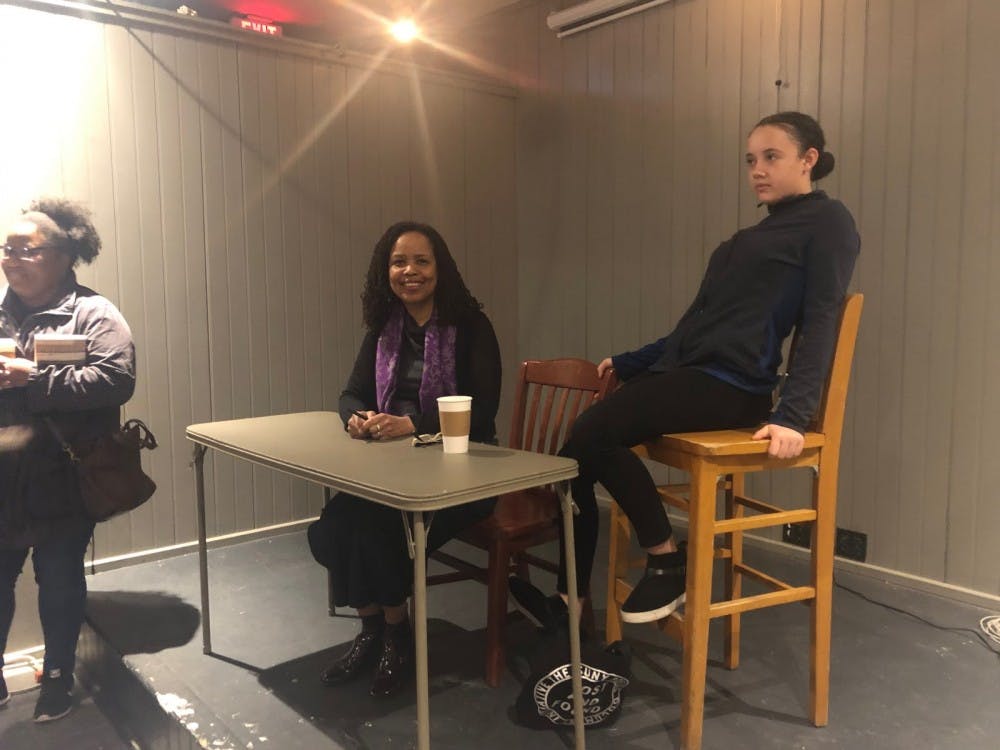Saidiya Hartman, writer and professor of African-American literature at Columbia University, discussed her novel, Wayward Lives, Beautiful Experiments, at Red Emma’s last Sunday. Hartman has written similar novels addressing the African diaspora, such as Lose Your Mother and Scenes of Subjection.
Wayward Lives describes the evolution of black intimate life in the U.S. from the end of 19th century to the beginning of 20th century. This revolution includes an increase in common-law and transient marriages, cohabitation outside wedlock, queer relationships and single motherhood. In her book, Hartman narrates the transition from Victorian beliefs about courtship, love and marriage to non-traditional relationships.
At the event, Hartman read from several sections of her book and showcased several photographs.
“Much of what I try to do in the book is to recreate the urban settings through soundscapes and through readings of photographs,” she said.
After reading, Hartman answered several questions during a Q&A session. Hartman emphasized her role as narrator in the book, describing her work as “historical poetics.”
“I’ve always thought of myself as a cultural historian, but I think that what I’m involved in is historical poetics — giving a way to build narratives,” Hartman said. “We never write a book by ourselves. So many peoples’ thoughts are on the page with us.”
She further emphasized her role in interpreting the revolution of black intimate life. She explained that she had not only relied on different archives written during the time period of the 19th and 20th century, but also used perspectives from different historians. This includes the work of sociologist William Edward Burghardt Du Bois.
Hartman also explained that a variety of different voices inspired her work. For example, Du Bois’ account became one of the characters in her novel.
Hartman noted that during her research, there were many archived photos portraying black life. However, many of these photos portrayed black people in a negative light.
“What’s paradoxical about this archive is on one hand it’s adequate, it’s tremendous, there are tens of thousands of photographs,“ Hartman said. “But in those tens of thousands of photographs, basically life is being produced and classified as a problem.”
Baltimore resident James Sullivan attended the event because of his interest in the time period in which the book was set.
“I was intrigued by the professor’s work, primarily because as an African American, the period of 18th to 19th century was in my investigation, where the political landscape really changed dramatically,” he said.
Sullivan admitted that before the event he had been unfamiliar with Hartman’s work. However, he thought the event was worthwhile overall and was a great opportunity to listen directly from Hartman about the story behind her novel.
Similarly, Baltimore resident Hannah Lane attended because of the historical context which Hartman explored. Lane was interested in this specific time period of the 20th century because she studied it as an undergraduate student.
“A year and a half ago I read a good portion of Lose Your Mother. [Hartman’s] writing tore me to pieces. It’s beautiful, and it’s also extremely relevant to me, because I was taking on studies about Atlantic slavery, specifically in this area,” she said. “As I was researching people who were enslaved there, I read Hartman and realized that other historians had the same question — what can or cannot be said about these people who were enslaved there.”
Lane thought that the event was short, but she nonetheless enjoyed hearing Hartman’s reading and her discussions.
When asked about how she thought the event went, Hartman said she enjoyed the responsiveness of the audience and hoped that it was an educational experience for the attendees.
“The purpose of this whole event was for the audience, really. So how you felt as an audience is ultimately what matters the most to me...It felt great coming to Red Emma’s and seeing all these different people,“ she said.
Hartman appreciated how the audience gave their different insights and asked questions about the novel. She noted that the event is a stepping stone in promoting black history, and especially in highlighting the 20th century time period upon which her book is based.





